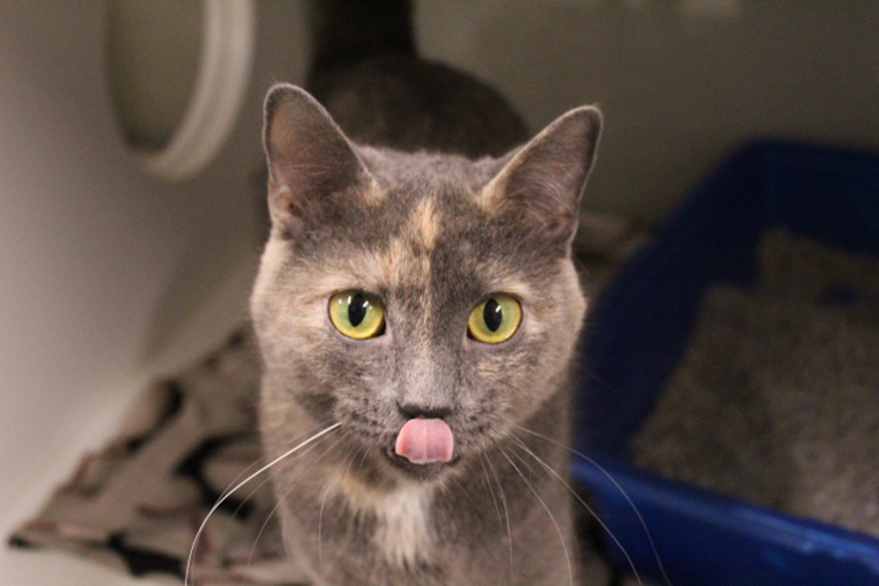
Let’s talk about cats and their litter boxes! While most cats are reliable and consistent with their litter box use from the time they are kittens, some cats will start to have “accidents” and eliminate outside their litter box.
The best thing for everyone involved (cats and people alike!) is to set them up for success right away to prevent litter box issues. Each cat may have its own preferences in regards to their litter box set-up and maintenance, but there are many generally accepted guidelines:
First, consider the number of litter boxes. The general rule of thumb is there should be one more litter box in the home than the number of cats in the home.
Example: You have two cats, so you should have three litter boxes. Even a single cat home should have two litter boxes available.
Next, consider the type of litter box. Most (not all) cats prefer large, open, easy to access litter boxes. Although covered litter boxes, ones that allow for top entry, or ones in cabinets can be more appealing to people, cats generally like a spacious open litter box. Similar to how cats often prefer to perch on an elevated surface to see their surroundings, an open box allows them to see the surrounding space and offers a sense of security.
Location of litter boxes is key. They should be placed in quiet, low traffic areas to provide some privacy. Next to a loud washer and dryer or in a room where people are regularly walking in and out is not ideal. There should also be a litter box on each level of the home. If there’s an urgent matter, walking up or down a flight of stairs may be a hindrance to appropriate litter box use. This is especially important in senior cats or those with mobility concerns.
Clean litter boxes are a must! Boxes should be scooped every day, and deep cleaned at least once a month. Deep cleaning means removing all the litter and washing the litter box in hot soapy water. Cats are generally clean and tidy creatures, so a clean litter box will be appreciated.
Most cats prefer fine-grain, unscented, clumping cat litter. It mimics the texture of the outdoor terrain where a cat may choose to eliminate. However, there are a variety of litter options available to try for individual cats. Additionally, cats usually do not like the plastic liners in their litter boxes.
Low stress and enrichment for cats is important in their overall well-being, and can correlate with litter box issues. The use of Feliway (synthetic “happy” cat pheromone) is recommended in many situations to provide a sense of calm and promote positive vibes in certain areas of the home (especially around the litter boxes). Playtime, plenty of toys, perching spots, scratching posts, etc. are all important in creating a happy home for your cat.
If your cat begins to urinate or defecate outside the litter box, it is important you consult with your veterinarian. Medical conditions such as parasites, infections, bladder stones, organ issues, metabolic diseases, and other conditions can contribute to litter box issues. Furthermore, what may have started as a medical issue may turn into a behavioral issue later. This is because cats can associate pain and discomfort with the litter box. Even after a medical issue is resolved, cats remember pain while in the litter box (regardless of the source of pain) and may continue to associate their surroundings with pain.
Another potential contributor to litter box issues is declawing surgery. Even after a declaw surgery has healed, the pain from walking and digging in the box can cause a chronic aversion to the litter box.
Declawing is not recommended unless medically necessary for the cat.
If your cat has been cleared medically and behavioral/emotional health has been addressed, and there are still litter box issues, there is still hope. Products such as Cat Attract and Feliway can be beneficial. Be sure to clean with urine-specific enzymatic cleaners to break down the organic urine material.
Re-assessing your litter box set-up and maintenance, and making changes to find your cat’s preferences may result in positive changes. Don’t hesitate to reach out to your veterinarian and/or Tri-County Humane Society for more tips on litter box care.
Rose Hegerle is a Certified Veterinary Technician and cat enthusiast.









